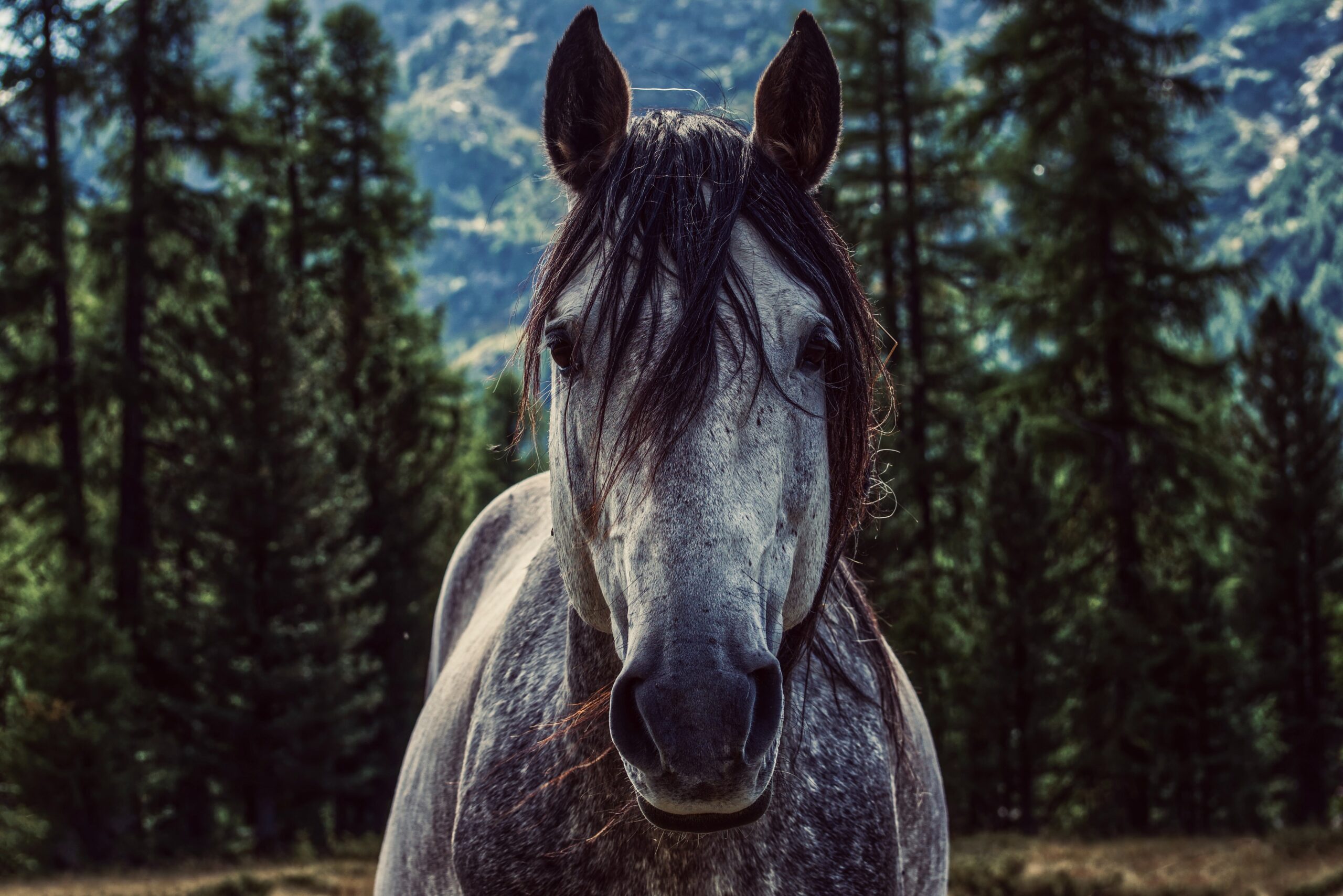Hey there! It’s your buddy Jack here. So, I was at the ranch the other day and I saw a wild horse just chillin’ out in the fields.
I was like, “Whoa, how does that guy survive out here all alone?”
And then I started thinking about all the other wild horses out there and how they manage to survive without, you know, a warm stable and a big ol’ pile of hay waiting for them every day.
Table of Contents
Finding Food and Water
Horses are actually pretty good at finding their own food and water in the wild. They’re herbivores, so they mostly eat grass, hay, and other plants. In the wild, they’ll graze on whatever grasses and plants are available in their habitat.
They can also survive for a while without drinking water if they have access to moist plants and dew.
But when food and water are scarce, horses can get pretty resourceful. They might dig for roots or tubers, or eat tree bark or other parts of plants that they normally wouldn’t touch. They can also travel long distances to find water sources, like rivers, ponds, and creeks.
Avoiding Predators
Horses are pretty big animals, but they can still be prey for predators like wolves, cougars, and bears. So, they’ve gotta be on the lookout for danger.
Wild horses have a few tricks up their sleeves for avoiding predators.
For one, they often travel in groups, or “bands.”
There’s safety in numbers, and it’s easier for a group of horses to keep an eye out for predators than it is for one horse to do it alone. Plus, if a predator does attack, the horses can team up and fight back.
Horses are also fast runners, and they can outrun most predators over short distances. If they sense danger, they’ll take off as fast as they can and try to get away.
Dealing with the Elements
Wild horses have to deal with all sorts of weather and temperature extremes, from scorching hot summers to freezing cold winters. They have a few tricks for surviving in these conditions, too.
In the winter, horses grow a thick, fluffy coat to keep warm. They’ll also huddle together for extra warmth, and they might seek shelter in forests or other natural windbreaks.
In the summer, horses try to stay cool by seeking out shade and taking frequent baths in rivers and ponds. They’ll also pant and sweat to regulate their body temperature.
FAQs
Do wild horses ever get sick or injured?
Just like domestic horses, wild horses can get sick or injured.
They might catch a cold or come down with a more serious illness, or they might get injured in a fight or from stepping on something sharp.
Do wild horses have to worry about human interference?
Unfortunately, yes.
Wild horses might have to deal with humans who hunt them for sport, or who try to capture them and sell them for meat or other purposes.
They might also have to deal with humans who build houses or other developments in their habitats, or who pollute the land and water they depend on.
What do wild horses do for fun?
Just like domestic horses, wild horses love to play and have fun. They’ll run and gallop around, play chase and tag, and nibble and groom each other.
They’ll also roll around in the dirt and mud, which helps them get rid of pesky bugs and dirt on their coats.
The Bottom Line: Horses Are Survivors
So, there you have it!
Wild horses are pretty amazing animals. They’re able to find food and water, avoid predators, and deal with the elements all on their own. They may not have the comforts of a domestic horse’s life, but they’re definitely capable of surviving and thriving in the wild.
Of course, that doesn’t mean we shouldn’t try to protect and preserve wild horse habitats. These amazing animals deserve a place to call home, just like we do. So let’s do our part to make sure they’ve got a safe and healthy place to roam.
I hope you enjoyed learning about how wild horses survive in their natural habitats. It’s always interesting to learn about the adaptations and behaviors of different animals, and it’s especially cool when we get to see those behaviors in action (like when I saw that wild horse at the ranch).
If you have any other questions about wild horses or any other animal, feel free to reach out to me. I love learning and talking about all kinds of critters!
Until next time,
Jack
